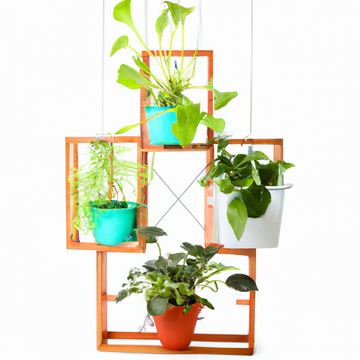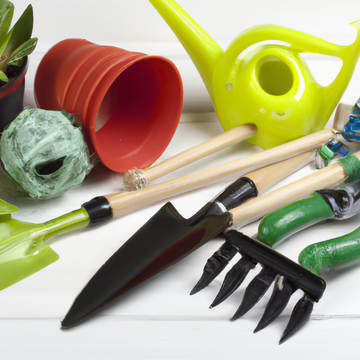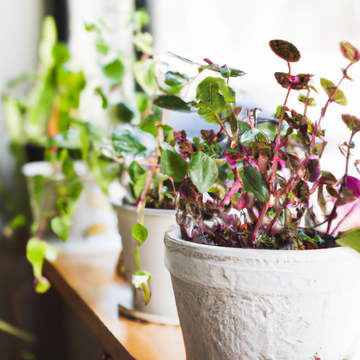Why Is Your Plant Not Flowering and Remains Unhealthy?
by GOLDDUST- Rethink&Revive on Apr 21, 2023

Plants are an essential part of our environment, and it is healthy to be surrounded by them. However, caring for them can be a challenging task. It is disappointing to see a plant in poor condition and without flowers, even after caring for it for a long time. When a costly plant suddenly appears sickly, it is also distressing. If you don't learn how to care for your plants, all your hard work and efforts will be in vain.
In this post, we'll look at a few of the most typical causes of non-flowering and unhealthiness in plants.
● Lack of Sunlight
Plants require sunlight to survive; if they don't receive enough of it, they may stop blooming. Knowing what your plant needs regarding sunshine is crucial because different plants have varying light requirements. Consider shifting your plant to a more sunny location in your house or garden if it isn't receiving enough sunshine.
● Overwatering
Although water is necessary for plant growth, overwatering can harm your plant's health. Root rot brought on by excessive watering can keep your plant from getting the nutrients required for flowering. Never leave your plant in standing water; only water it when the soil feels dry.
● Underwatering
On the other hand, underwatering might make your plant unwell and prevent it from flowering. Your plant may grow stressed and unable to produce blooms if it does not receive adequate water. Water your plant frequently, but not excessively, and make sure the soil isn't getting too dry by checking it frequently.
● Poor Soil Quality
One of the essential elements for overall plant health is soil quality. As plants rely on the soil they are planted in for nutrients, poor soil quality can impact their health and flowering potential. Ensure that the soil where your plant grows is rich in nutrients and has good drainage. Clay soil with sufficient drainage allows for good root aeration. Garden soil alone is insufficient; you should include other ingredients like perlite, dried sphagnum moss, vermicompost, coco peat, and peat moss to make it healthier. Most people consider adding compost or fertilizer to their soil to improve its condition.

● Wrong Temperature
If your plant is not in the proper habitat, it may get sick and not flower because different plants prefer different temperatures. While some plants prefer cooler conditions, others need warmer environments. Be careful to study the ideal temperature range for your plant and modify the environment as necessary.
● Pests or Diseases
Pests and illnesses might also impact your plant's health and flowering potential. Aphids, spider mites, and mealybugs are typical pests that can harm plants. Root rot and powdery mildew are two ailments that might stop your plant from blooming. Consider treating your plant immediately if it has pests or illnesses. To increase plant immunity, you must be careful to remove diseased and unhealthy areas and use high-quality fertilizer.
● Lack of Nutrients
To develop flowers, plants require a range of nutrients. Lack of nutrients might cause your plant to grow unhealthy and prevent it from flowering. In the case of potted plants, all the nutrients would eventually be used up at some point in time, and naturally, these plants would stop flowering. If you want to increase the soil's quality and give your plant the nutrients it needs, consider adding fertilizer or compost.
How Can Fertilizers Boost Plant Health?
Fertilizers can improve plant health by delivering vital nutrients that plants require for growth and development. A healthy plant's growth depends on minerals like nitrogen, phosphorus, and potassium, which fertilizers supply. While the growth of leaves and stems is encouraged by nitrogen, flowering, and root development are encouraged by phosphorus. Moreover, nutrient uptake and water balance are regulated by potassium. In many cases, fertilizer-fed plants are more productive and yield higher quantities of fruits, vegetables, and flowers.
Healthy plants are frequently more resilient to pests and illnesses. Fertilizers can strengthen a plant's natural defenses against pathogens and promote better plant health. By increasing organic matter and enhancing soil structure, some fertilizers, such as organic fertilizers for flowers can enhance soil quality. This may result in greater plant nutrient availability, higher soil aeration, and improved water retention. Plants that receive fertilizer can continue to have nice, aesthetically pleasing foliage and brilliant color.
It's crucial to remember that while fertilizers might be suitable for plants, they should only be applied sparingly and in accordance with the individual requirements of the plants. It's vital to follow the directions on the fertilizer box and get advice from a gardening expert if necessary because excessive fertilization can be bad for plants and the environment.
Wrapping Up
Your plant may not be blossoming and may still be unhealthy for various reasons. The most frequent causes include a lack of sunlight, excessive or inadequate watering, poor soil quality, an unfavorable temperature, pests or illnesses, and a nutrient deficiency. You may support your plant's growth and the production of lovely blooms by figuring out the root of the issue and taking the appropriate action to solve it. Remember to explore your plant's unique requirements and modify your care as necessary. You can have a thriving, robust plant that enlivens your home or yard if you have the patience and focus on caring for it properly.




